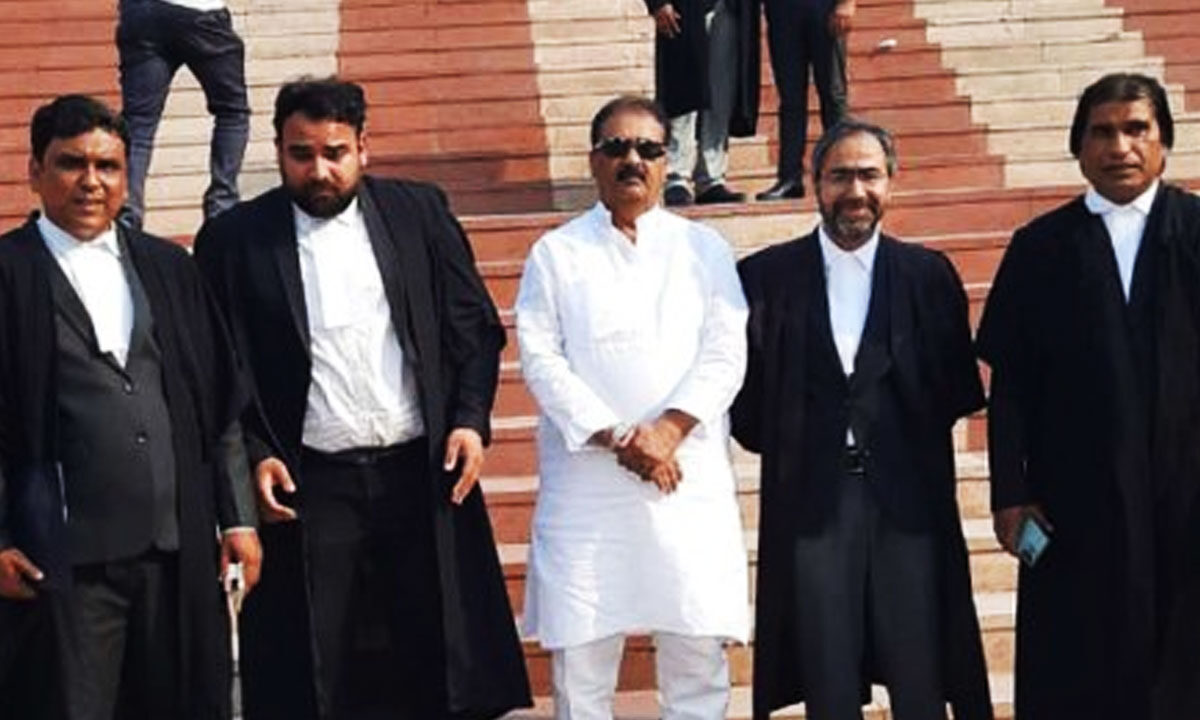Shabbir Ali Attends Supreme Court Hearing, Vows Legal Battle Against Waqf Act
Telangana Government Advisor and senior Congress leader Mohammed Ali Shabbir on Wednesday attended the Supreme Court hearing challenging the controversial Waqf Amendment Act.

New Delhi / Hyderabad: Telangana Government Advisor and senior Congress leader Mohammed Ali Shabbir on Wednesday attended the Supreme Court hearing challenging the controversial Waqf Amendment Act. Expressing satisfaction over the court’s serious observations, Shabbir Ali reiterated his resolve to fight the law through legal and democratic means.
Table of Contents
Speaking to the media after the hearing, Shabbir Ali said the bench’s concerns about religious autonomy and minority rights reaffirmed the petitioners’ stand. “The court has clearly recognised the constitutional implications of this law. We are confident that the implementation of the Waqf Amendment Act will be stayed,” he said.
‘Assault on Muslim Religious Institutions’
Calling the amended law a direct attack on Muslim institutions, Shabbir Ali vowed to continue the fight until it is repealed. “This is about protecting centuries-old Waqf properties and the constitutional rights of the Muslim community. We will fight this in court, in Parliament, and among the people,” he declared.
The case is being argued by senior advocates Kapil Sibal and Salman Khurshid on behalf of Shabbir Ali. A total of over 100 petitions challenging the Act were heard by a bench led by Chief Justice Sanjiv Khanna and Justices P.V. Sanjay Kumar and K.V. Viswanathan.
SC Questions Inclusion of Non-Muslims, Delegation of Powers
During the hearing, the Supreme Court questioned the Centre over the inclusion of non-Muslims in the Central Waqf Council and whether such a provision could be applied to Hindu religious bodies. The bench also raised concerns about giving quasi-judicial powers to District Magistrates for settling Waqf property disputes.
It further highlighted the challenges in proving the existence of religious structures built through long-standing usage and raised the issue of protecting such by-user Waqf properties.
Arguments and Interim Relief Under Consideration
Senior advocates Rajeev Dhavan, Abhishek Manu Singhvi, and C.U. Singh also appeared for the petitioners, arguing that the amendments violate Article 26 of the Constitution, which guarantees religious groups the right to manage their own affairs.
The Centre, represented by the Solicitor General, defended the Act claiming it aimed to improve transparency. However, the court said it may issue interim orders regarding two key aspects—restricting Waqf Board membership to Muslims (except ex officio members) and preventing action against religious properties until the case is resolved.
The hearing is scheduled to continue on Thursday, April 17.

